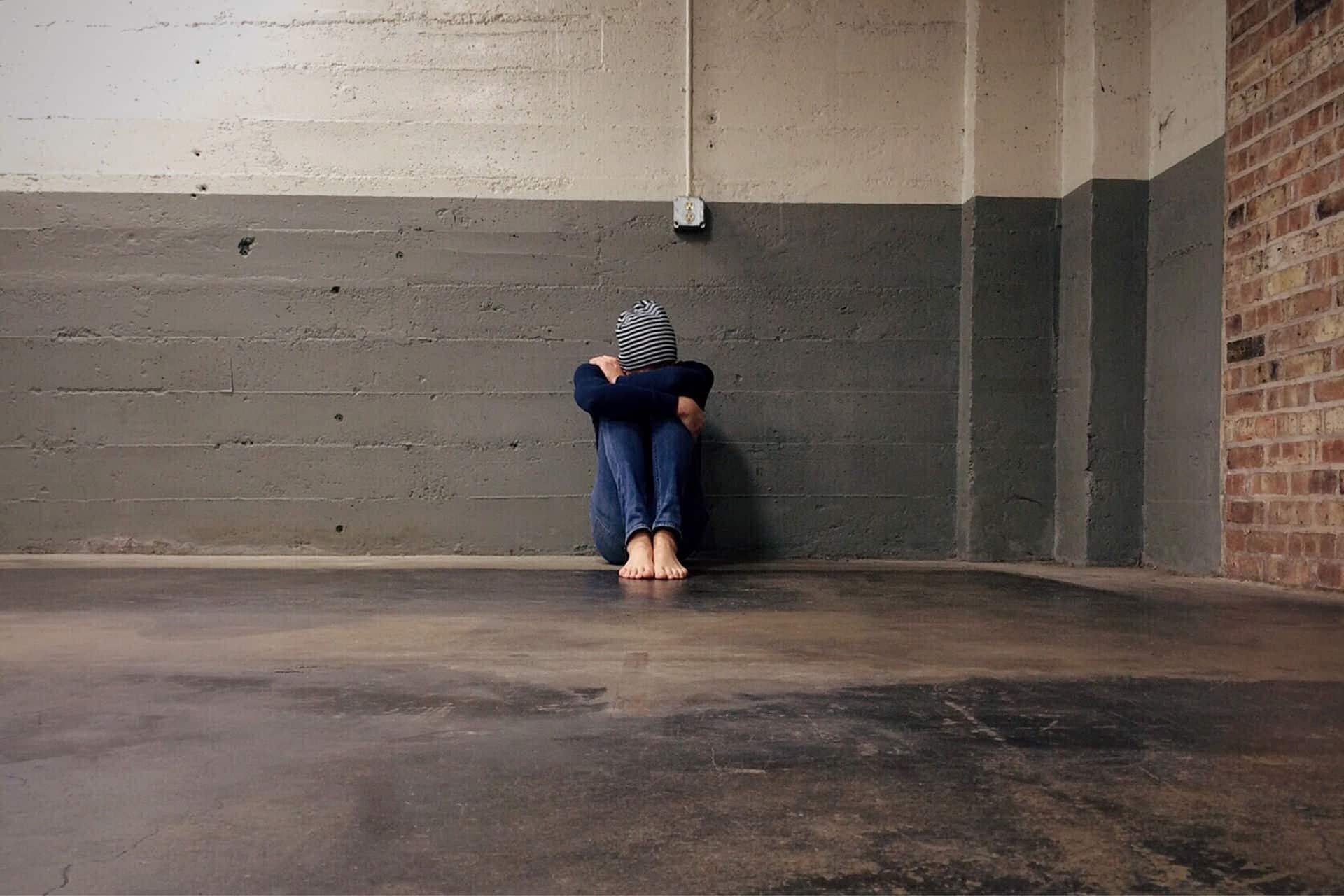Contact Orlando Treatment Solutions
For any other questions please call us or fill out the contact us form. We're here to help you at Orlando Treatment Solutions.
Contact Us Call Now (321) 415-3213Popular Post
Addiction is a chronic disease that is widespread and varied and impacts millions of people globally. It is defined by repeated actions that are damaging but the individual cannot stop doing them. It is therefore important to realize what forms of addiction are common or frequent so that people can identify these symptoms in themselves and seek help when necessary. In this blog, we will look at the top 10 things that people get addicted most often.
1. Nicotine
Nicotine addiction is perhaps one of the most typical and pervasive addictions known to be hard to break. Nicotine is a substance present in tobacco in the form of cigarettes, cigars, electronic cigarettes, and other vaping tools. This is because it has a high rate of absorption to the brain hence providing dopamine that causes pleasure thus becoming addictive.
According to the World Health Organization, nicotine/tobacco is responsible for the death of over 8 million people each year. Currently, 3 billion people across the globe are using tobacco products among them 1 billion being addicted to nicotine. This is due to several reasons and influences such as the chemical changes in the brain which make nicotine dependent, cultural norms, and pressure from friends and colleagues.
Impact on Health
This substance is hazardous for human health and some people can become addicted to nicotine. They remain a leading cause of lung cancer, heart disease, stroke, and chronic obstructive pulmonary disease (COPD). Moreover, secondhand smoke is not safe for other people because it can result in respiratory diseases and heart complications among others.
Common Forms
Nicotine is consumed in various forms, including:
- Cigarettes
- Cigars
- Chewing tobacco
- Vaping devices (e-cigarettes)
Methods for Quitting
- Nicotine Replacement Therapies (NRTs): These include patches, gum, lozenges, and nasal sprays.
- Prescription Medications: Nicotine preparations like bupropion (Zyban) and varenicline (Chantix) can help alleviate cravings.
- Behavioral Support: It is also helpful to get counseling or take part in support groups, where emotional and psychological support can be offered.
2. Alcohol
Alcohol dependency or alcohol use disorder is an illness that is witnessed in millions of people anywhere in the world. It is a human behavior that results from certain psychological and genetic and some social factors and it leads to severe health and social issues.
The National Institute on Alcohol Abuse and Alcoholism (NIAAA) states that in the United States approximately 14. Out of the surveyed people, 1 million adults were found to have AUD in 2019.
Reasons for Addiction
Alcohol addiction develops due to various factors, including:
- Genetic Predisposition: Some of the risk factors include a history of alcoholism in the family.
- Psychological Factors: Various conditions such as stress, trauma, as well as mental health disorders can cause it.
- Social Influences: There are certain cultural practices and practices the pressure from the peers that influence this.
Health and Social Impacts
Alcohol addiction can lead to:
- Liver Disease: To name a few; cirrhosis, hepatitis to mention but a few.
- Cardiovascular Problems: Hypertension, heart ailments, and stroke.
- Social Issues: Disputes, unemployment, or perhaps an accident within the family.
Signs of Alcohol Addiction
Common signs of alcohol addiction include:
- Increased tolerance to alcohol.
- Binge drinking and or consuming alcohol in solitude.
- Feeling the signs of withdrawal when one does not take alcohol.
Treatment and Recovery Options
Treatment often involves a combination of:
- Rehab Programs: Intensive care institutions for patients offering one or multiple kinds of addiction treatment programs.
- Support Groups: Organizations assisting people coping with alcohol addiction.
- Counseling: Psychotherapy is needed to treat the mental problems that may be contributing to the situation.
3. Drugs (Illegal and Prescription)
Another common addiction people suffer consists of using illicit substances, for instance, heroin, cocaine, and methamphetamine, or prescribed drugs such as opioids, and benzodiazepines.
World Health Organisation estimates show that globally there are approximately 35 million users of drugs who have drug use disorders.
Types of Drugs
- Illegal Drugs: These would also include Heroin, cocaine, methamphetamines, and marijuana.
- Prescription Drugs: Opioids (such as oxycodone, hydrocodone), benzodiazepines (such as Xanax, Valium).
Reasons for Addiction
Drug addiction can result from:
- Prescription Misuse: Abuse of prescription drugs among the youth, involves taking them in the wrong dosages and substances.
- Recreational Use: Desiring a getting high and fun from the demand for drugs.
- Social and Environmental Factors: Friends and associates influence, ease of accessing substances, and economic status.
Impact on Physical and Mental Health
Drug addiction can cause:
- Physical Health Issues: Increased toxicity, acquired infections, end-organ dysfunction.
- Mental Health Problems: The manifestations of the developed disorder might include anxiety, depression as well as psychosis.
Legal Consequences
Possession and use of illegal drugs can lead to:
- Arrest and Imprisonment: Availability and legal sanctions also differ from one country to another.
- Social Stigma: Losses incurred in one’s day-to-day activities and work.
Treatment and Rehabilitation
Effective treatment typically includes:
- Therapy: Usage of counseling such as cognitive behavioral therapy (CBT).
- Support Groups: An example of a fellow support group is Narcotics Anonymous (NA).
- Medication-Assisted Treatment (MAT): Prescription of drugs to treat opioid dependency such as methadone or buprenorphine.
4. Caffeine
Caffeine is legal, and it is found in beverages such as coffee, tea, energy drinks, and even in certain medications. In moderate amounts, wine is beneficial, but when it is overdone, it becomes addictive.
According to the U. S. Food and Drug Administration (FDA), approximately 80% of grown-ups in the U. S. take caffeine daily.
Reasons for Addiction
Caffeine has stimulating effects that cause an increased energy and alertness, hence resulting in addiction. Cultural tradition and social behavior also play a part in its usage all over the region.
Effects on the Body
- Energy Boost: Better wakefulness and less tiredness.
- Dependence: This has the disadvantage of leading to tolerance and dependence when taken frequently.
- Withdrawal Symptoms: Headaches, excessive fatigue, increased irritability, and poor concentration.
Health Implications
Recent studies show that moderate intake of caffeine increases focus and alertness. However, excessive consumption may lead to:
- Insomnia: Inability to sleep or remain asleep for most of the night.
- Heart Issues: An elevated pulse rate and higher blood pressure.
- Digestive Problems: Heartburn or gastroesophageal reflux disease (GORD), peptic ulcer.
Ways of Cutting Down on Caffeine Consumption
- Gradual Reduction: Gradually cut down the intake of caffeine.
- Switch to Decaf: Refrain from drinking tea, coffee, or other beverages that contain caffeine.
- Stay Hydrated: This will help to minimize cravings for instance take as much water as possible.
- Healthy Alternatives: Substitute with herbal teas or natural stimulants such as exercise.
5. Gambling
Pathological gambling, also referred to as compulsive gambling is an illness where one is compelled to gamble despite the adverse effects arising out of it.
Types of Gambling
Common forms of gambling include:
- Casinos: Gaming machines, poker, blackjack.
- Online Betting: Betting on sports, and casinos on the internet.
- Lotteries: Lottery, scratch games.
Psychological Reasons for Addiction
- Thrill Seeking: The joy of victory or the expectancy of victory.
- Financial Desperation: His gambling as a way of repaying his financial debts.
- Cognitive Biases: The tendency to believe that the probability of success is higher than the actual possibility.
Social and Financial Impacts
- Financial Ruin: Debt and financial risk and volatility.
- Relationship Strain: Interpersonal fight with the family and friends.
- Mental Health Issues: It can lead to anxiety, depression, and stress.
Signs of Gambling Addiction
- Preoccupation with Gambling: Constant willingness to do gambling.
- Chasing Losses: The act of being unable to stop gambling in an attempt to win back lost money.
- Lying about Gambling: Thus masking the actual level and prevalence of gambling activity.
Treatment Options
- Therapy: Psychological treatment such as cognitive-behavioral therapy to alter the gambling behavior.
- Support Groups: The support organization is the Gamblers Anonymous (GA).
- Financial Counseling: Help with handling money and paying off loans.
6. Internet and Social Media
Internet and social media addiction is possibly one such psychological phenomenon precipitated by digital advancement where people get hooked on to the accessibility of the internet and the consequent interactions.
According to Statista, as of 2021, there were over 4.2 billion social media users worldwide.
Reasons for Addiction
Internet and social media addiction is fueled by:
- Dopamine Release: Likes and notifications show that people are attached to something creating pleasure felt by the release of dopamine.
- Social Validation: Desiring the acceptance of the members and recognition in their group.
- Escapism: The internet is also a way we isolate ourselves from real-life Issues & challenges.
Effects on Mental Health
Excessive use can lead to:
- Anxiety and Depression: When one compares herself or himself with other persons on social media, one gets an inferiority complex.
- Social Isolation: Quoting more time online than physically — especially with fellow staff members or colleagues.
- Sleep Problems: Case on how blue light affects screens, especially at night can affect sleeping patterns.
Impact on Productivity and Relationships
Internet addiction can negatively impact:
- Productivity: Losing interest in what is important to them, as well as being less productive at their workplace or school.
- Relationships: Exclusion of real-life social and other engagements and obligations.
Ways to Reduce Screen Time
To reduce internet and social media use, try:
- Setting Boundaries: Set a schedule of the allowed time on the internet.
- Digital Detox: Take breaks from using gadgets and electronics, especially from screen devices.
- Engaging in Offline Activities: Determine things that you can do that don’t involve devices.
7. Food
Food addiction includes objections and dependency on specific types of food, particularly those containing sugar and fat.
Types of Food Addictions
- Sugar: Sweets and sugary beverages are taken frequently.
- Fast Food: This forms a big part of the diet, especially the highly processed and calorie-dense foods.
Psychological and Biological Reasons
Food addiction can result from:
- Emotional Eating: Eating is a way to deal with stress, anxiety, or sadness.
- Brain Chemistry: Drugs affect the release of dopamine and some foods release the same chemical in the body.
Health Impacts
Food addiction can lead to:
- Obesity: Obesity and possible related disorders.
- Diabetes: Diabetes type 2 can be especially contributed by the high levels of sugar in the human body.
- Heart Disease: High high-fat diet interfering with the categories of fats makes it dangerous for the cardiovascular health of people.
Signs of Food Addiction
- Cravings: Compulsive desire to eat certain types of food.
- Binge Eating: Taking a lot of food in one sitting or at a very short interval of each other.
- Guilt and Shame: Regretting after consuming foods that one had. set aside for some other time or undertaking a binge eating episode.
Treatment and Support
Overcoming food addiction may involve:
- Nutrition Counseling: Additional information because of the healthy eating behavior according to the professional’s consultation.
- Therapy: Overcoming the emotional component of the triggers in CBT.
- Support Groups: In this category, we have OA Overeaters Anonymous where people suffering from the same problem will be grouped and supported by other members.
8. Shopping
Compulsive buying, or shopping addiction, is characterized by a rash desire to buy things, which in the end leads to the sufferer’s difficulty in finding enough money to pay his or her bills and his or her alienation from friends and loved ones.

Reasons for Addiction
Shopping addiction can be driven by:
- Emotional Gratification: This type of shopping is done when we are stressed or depressed and the intention is to purchase something that will make us feel better.
- Compulsive Behavior: A compulsion to purchase things.
Financial and Social Consequences
Compulsive shopping can lead to:
- Debt: Having credit card debts, and an unstable financial situation.
- Relationship Strain: Disagreements with one’s family and friends regarding the expenditure.
Symptoms of Pathological Buying
- Preoccupation with Shopping: Obsessions of purchasing things now and then.
- Financial Irresponsibility: Living in a manner without thinking of income
- Hiding Purchases: Lying to family and friends about purchases made.
Methods of Controlling Expériences
To control shopping habits, consider:
- Budgeting: Budgeting and the ability to plan for it are among the most vital elements in financial management.
- Avoiding Triggers: Avoiding the physical and virtual markets.
- Seeking Support: Support from therapists, counselors, or support groups can be beneficial to solve the primary problems.
9. Work
Work addiction or workaholism, is a result of the individual’s desire to gain approval and recognition from others as well as cultural imperatives to work.
Reasons for Work Addiction
Work addiction can result from:
- Cultural Values: Society puts lots of stress on working hard as well as achieving success.
- Personal Validation: Desperate rating and self-esteem.
Impact on Health
Work addiction can lead to:
- Stress and Burnout: Burnout or violations relating to fatigue and exhaustion of the physical and/or mental attributes of the employee.
- Neglected Relationships: It will also lead to conflict between the patient and their family members/ friends.
- Health Problems: The development of heart diseases and other stress-related diseases or disorders.
Signs of Work Addiction
- Inability to Disconnect: Having one’s mind preoccupied with work during such periods as holidays and vacations.
- Neglecting Personal Life: Neglecting one’s own relationships and recreational activities in favor of work.
- Perfectionism: Perfectionism refers to setting unattainable goals and feeling insufficient.
Work-Life Balance Strategies
To balance work and personal life, try:
- Time Management: Making adjustments of setting proper limits and moderation of time used for the purpose.
- Delegating Tasks: Support from other people in the workplace.
- Seeking Support: Psychotherapy to help employees deal with job stress.
10. Video Games
Gamers of all ages come under the influence of Video game addiction where they turn to video games to escape reality.
ESA says that 65% of the adult population in the United States is involved in playing games and a number of them have developed gaming addiction.
Reasons for Addiction
Video game addiction can be driven by:
- Escapism: Misuse of games and how it contributes to evasion of real-life issues.
- Reward Systems: Release of dopamine when they get in-game achievements and awards.
- Social Interaction: Multiplayer video games can be played on the Internet and thus come with the social capability to form a community.
Effects on Physical and Mental Health
Excessive gaming can lead to:
- Sedentary Lifestyle: Non-movement-related diseases and illnesses and diseases resulting from low physical activity levels.
- Sleep Issues: Night awareness resulting from late-night gaming.
- Isolation: Investing a lot of time in cyberspace relationships and not dealing with real-life problems.
- Impaired Relationships: This leads to the loss of family and friends and hence strained relationships with them.
Do’s & Don’ts of Healthy Gaming
To maintain a healthy lifestyle, consider:
- Setting Time Limits: Setting the rules of limitations in gaming hours of a day or days in a week.
- Taking Breaks: This will help minimize the amount of time that a given player spends gaming and therefore; avoid stagnation.
- Engaging in Other Activities: Seeking other non-gaming-related interests and pastimes.
Any type of addiction often has negative outcomes; however, a person can seek help and overcome addiction. If you or someone you know is troubled, then the best course to take is to seek help from professionals.

At Orlando Treatment Solutions, we provide different addiction treatment programs and services depending on each patient. Reach out to us at (321) 415-3213 today to get more information on our specialties and on how we can help in your path towards a better and addiction-free life.
Contact Us
CALL US NOW
Orlando Treatment Solutions will iron out the details for you in a manner that will make you confident in your path to sobriety. That first simple call is your ticket to making Orlando Treatment Solutions your solution for addiction. Get the freedom from addiction that you deserve today.
Call us now on (321) 415-3213Updated News
LATEST POSTS
Orlando Treatment Solutions makes numerous media outlets available to encourage you in your recovery process. Digital media literature is approved by a licensed professional and intended to guide you in your recovery path.

Years of experience
Our leadership team has extensive experience in dual-diagnosis treatment and is ready to help those who are struggling with substance use and mental health.

Specialists
Our staff consists of many licensed addiction and mental health treatment facilitators and other staff who are ready to share their experience and their success.

Happy patients
Orlando Treatment Solutions has helped over 2,000 people who have struggled with substance use (alcohol and drug addiction) and mental health find freedom.
Contact Us
GET IN TOUCH
Reaching out to Orlando Treatment Solutions may be the most important call of your recovery process. A caring professional is waiting for your call to be your guide to addiction-free living.
 info@shc.health
info@shc.health 




